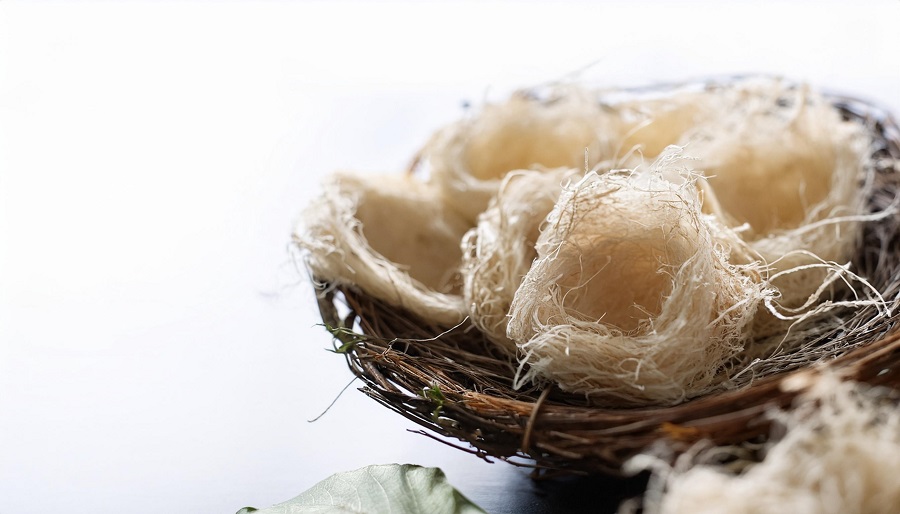Should You Eat or Drink Bird's Nest

If you've ever wondered whether you should eat or drink bird's nest, you're not alone. This edible delicacy, crafted from the saliva of swiftlets, is valued for its supposed health perks and centuries-old tradition. However, not everyone agrees on its benefits—or the risks it might carry. Before you add it to your menu or pass on the opportunity, it's worth weighing the facts from both nutritional and ethical standpoints.
What Is Bird’s Nest and How Is It Made?
Bird's nest, a delicacy in certain cultures, is primarily composed of the hardened saliva of edible-nest swiftlets found in Southeast Asia.
Unlike traditional nests made from twigs and leaves, these nests are produced by male swiftlets during the breeding season, taking approximately 35 days to complete.
The nests are cup-shaped and are valued for their purity and distinctive texture.
Harvesting typically occurs in limestone caves or specially built nesting houses.
The nests are classified into different types based on color: white, gold, and the less common red variety. Here you can read more about the different types of bird nests:
https://www.goldennest.com/blogs/news/facts-about-different-types-of-bird-nests
This classification is important for determining their quality and market value.
The process of sourcing edible bird’s nests for consumption involves careful collection and cleaning to ensure they meet safety and quality standards.
The nests are sought after due to their unique origin and the meticulous craftsmanship required for their creation.
Nutritional Value and Health Claims
Bird's nest has a notable nutritional composition, comprising essential minerals such as calcium, magnesium, and zinc. It also contains carbohydrates, glycoproteins, and bioactive compounds like sialic acid and amino acids.
The high protein content in bird's nest, along with its amino acids, may contribute to supporting the immune system and maintaining overall vitality.
While traditional health claims suggest various benefits, such as enhanced immune function and improved skin health, current scientific evidence is limited, with most research conducted on animal models.
Nevertheless, the inclusion of bird's nest in one's diet may offer potential benefits, particularly in providing essential minerals like calcium and supporting immune health.
Traditional and Modern Uses of Bird’s Nest
For centuries, edible bird's nests have been valued for their purported health benefits, particularly in traditional Chinese medicine (TCM). In this context, bird's nest soup is often recommended for its potential to enhance immune function and energy levels. Historically, there was a belief that consuming bird's nest before meals could optimize these benefits.
In contemporary Chinese cuisine, bird's nest is incorporated into both savory soups and desserts.
Research indicates that the glycoproteins present in bird's nests may aid in skin repair, which has led to the development of products such as Nest Drink and supplements aimed at promoting beauty and anti-aging.
The use of edible bird's nest is an example of how traditional practices are adapting to align with modern wellness trends.
Recommended Intake and Best Consumption Practices
Understanding both the historical and contemporary relevance of bird's nest can assist in making informed decisions about its incorporation into one's routine.
For optimal nutrient absorption, a daily intake of one small bowl is generally advisable. Regular consumption is believed to enhance the nutrient benefits of bird's nest.
In traditional Chinese medicine, it's suggested that the best time to consume bird's nest is on an empty stomach, either before breakfast or before bed, as this may aid in nutrient absorption.
Simmering the bird's nest with rock sugar is a common practice intended to maintain its nutritional value and flavor.
It's important for pregnant individuals to seek professional medical advice before consuming bird's nest, as while it may offer benefits, proper guidance is crucial. Additionally, it's recommended to monitor for any allergic reactions when initially incorporating bird's nest into the diet.
Possible Risks and Side Effects
When considering the inclusion of edible-nest swiftlet nests in your diet, it's important to be informed about potential risks and side effects.
Individuals may experience allergic reactions, ranging from mild rashes to more severe swelling, as these nests can affect the immune system.
Additionally, the market for bird's nests isn't always well-regulated, leading to concerns about counterfeit products and possible contamination, including H5N1 avian flu.
Bird's nests are high in protein, and excessive consumption may result in indigestion.
Red bird's nests, in particular, have higher levels of nitrites and nitrates, which could pose health risks.
Furthermore, overconsumption of bird's nests might lead to an overload of certain minerals.
Therefore, it's crucial to consume these products in moderation and ensure their authenticity to mitigate potential health issues.
Environmental Impact and Sustainability
Consuming bird's nest products can have environmental implications, particularly concerning the populations of Indian swiftlets. The demand for edible nests places pressure on these birds, notably in the Gomantong and Niah caves in Malaysia, where swiftlet populations are vulnerable.
The nests are highly valued, which can lead to profitable but unsustainable harvesting practices that disrupt breeding patterns and damage habitats.
Efforts to mitigate these impacts include Chinese regulations and the promotion of sustainable practices, such as the use of artificial houses and controlled nest collection. These measures aim to protect swiftlet populations while allowing for continued nest harvesting.
Consumers can contribute to the sustainability of this practice by choosing products from verified sustainable sources. This approach supports the long-term availability of bird's nests and helps to preserve swiftlet populations and their ecosystems. Such informed choices are crucial for balancing economic interests with environmental conservation.
Conclusion
If you're considering bird’s nest, weigh both the benefits and potential risks before adding it to your diet. It can offer nutrients and possible health perks, but allergies and contamination are real concerns. Always choose reputable, sustainable sources to protect your health and the environment. Don’t overdo it—moderation’s key. Most importantly, talk to your healthcare provider before trying bird’s nest, especially if you’re pregnant or have any allergies. Make informed choices for your well-being.
